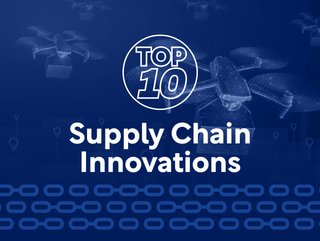
It is no secret that technology is working to vastly transform the supply chain industry.
Digital transformation, which includes the likes of automation for example, is making it more possible to make a broad range of activities easier - including inventory control, order processing and logistics. As a result, workplace productivity is increased, alongside a much lower mistake rate.
Likewise, workers are becoming increasingly aware of the need to be trained on new technologies such as generative AI (Gen AI) in order to advance business development.
With this in mind, we consider some of the current leading supply chain innovations around the world.
10. Blockchain
Blockchain technology refers to an advanced database mechanism that allows transparent information sharing within a business network. It can be used within the supply chain industry to help organisations better understand their supply chain and therefore engage its consumers with verifiable data.
Using blockchain technology within the supply chain can work to improve communication between stakeholders, which could include sharing databases and cutting out the need for a ‘middle man’ to coordinate.
It can also work to improve supply chain transparency and reduce administrative costs.
9. Cloud
Traditional supply chain solutions using very manual procedures to oversee operations like logistics, inventory management, replenishment and warehousing. Harnessing the cloud can enable supply chain managers to automate these functions and leverage data analytics to make better and more-informed decisions within the supply chain.
Likewise, cloud-based supply chain management offers a wide range of benefits, including enhanced real-time data visibility, streamlined logistics, improved collaboration among stakeholders and overall operational efficiency.
8. AR/VR
Augmented reality and virtual reality (AR/VR) holds the potential to revolutionise the supply chain. It can offer businesses the opportunity to streamline supply chain processes, particularly within areas such as warehousing, transportation, distribution and operations.
By automating and digitising previously manual processes, it can reduce production costs and improve overall efficiency - thereby reshaping supply chain and logistics operations.
AR/VR can also offer real-time data overlays on asset location, inventory monitoring and task guidance. Specifically, AR can enable improved resource allocation, minimised downtime and heightened accuracy in logistics operations.
VR devices can also facilitate analysis and rapid decision-making to address organisational challenges.
7. Predictive Analytics
Predictive analytics can be harnessed for a broad range of use cases, including forecasting demand, optimising inventory levels and identifying potential bottlenecks. Using sophisticated models, predictive analytics also allows supply chain managers to determine detailed inventory requirements by region, location and usage.
Likewise, predictive maintenance can help to control escalating costs by enhancing performance awareness and reducing downtime for an organisation. Likewise, it can help an organisation improve forecasting, identify inefficiencies, respond better to customer needs, drive innovation and pursue breakthrough ideas.
6. Digital Twins
A digital twin is a digital representation of a physical object, person or process. Contextualised in a digital version of its environment, they can help businesses simulate real situations and their outcomes, resulting in improved decision-making.
According to the World Economic Forum, digital twins allow real-time support for decision-making in a business environment. As they are digital replicas of global supply chain networks, they can provide real-time visualisations of operations, including goods in transit and inventories.
5. Robotics and Automation
Supply chain automation is the use of modern technologies to automate tasks that are traditionally manual. This is done to streamline workflows and increase overall efficiency. Technologies used include warehouse robotics, the Internet of Things (IoT) and artificial intelligence (AI).
Its primary purpose is ultimately to replace manual tasks with systems that function without the need for human interference.
Supply chain management harnesses robotic process automation to automate low-value tasks, streamline operations and remove human error. As a whole, robotics can enable supply chains to upscale faster and meet supply requirements as demand increases.
4. 3D Printing
3D printing has fast-become commonplace within a wide range of industries and can allow supply chains to take advantage of greater market opportunities. As the business landscape becomes more competitive, 3D printing is being harnessed to ensure products are designed and built quicker.
It can be used to reduce complexities within the supply chain, increase the speed to market of a product, reduce global impact and enable remote locations to print replacement parts.
Some other benefits that 3D printing technology can afford the supply chain industry include reducing cost, production speed and supply chain risks.
3. The Internet of Things (IoT)
IoT is a network of interrelated devices that connect and exchange data with other IoT devices and the cloud. Overall, IoT devices are used across nearly every stage of the supply chain process.
Within supply chains, IoT can help to track and trace shipments by harnessing real-time monitoring technologies, including GPS.
A key example of how IoT has been implemented within a supply chain is Amazon harnessing the technology to improve efficiency and customer experience. By connecting physical objects and using sensor-based technologies, Amazon can track the position, quality and timely delivery of products.
2. Machine Learning
AI and machine learning technologies are working to revolutionise supply chain management in so many ways and across a broad range of areas.
For instance, Machine learning can work within a supply chain to automate warehouse operations and eliminate manual errors that lead to delays or lost shipments. Likewise, it can automate routine tasks such as picking, sorting and palletising of goods, freeing up human workforces for more complex tasks.
It can also provide insights into inventory levels, stock availability, shipment timeframes and fulfilment rates.
1. Generative AI (Gen AI)
AI is playing an increasingly important role in the supply chain industry, as businesses can work to optimise and streamline their operations across many areas. According to a 2022 McKinsey survey, respondents stated that their highest cost savings from AI were in supply chain management.
One of the areas where AI can make improvements is customer experience, as AI-powered chatbots and virtual assistants can help companies provide better and faster customer service. In fact, there is a huge technology ecosystem built around the application of AI technologies across all aspects of business, including supply chain.
******
Check out the latest edition of Supply Chain Magazine and sign up to our global conference series – Procurement and SupplyChain LIVE 2024.
******
Supply Chain Digital is a BizClik brand.
- P.F. Chang's Keeping Tabs on Supply Chain Thanks to WorkdayOperations
- DB Schenker’s bid to Drive Forward Fully-Electric TrucksSustainability
- GlobalData: Supply Chain Pressure Emerges as Global ConcernSupply Chain Risk Management
- Why Logistics Giant DP World is Betting big on RomaniaLogistics






